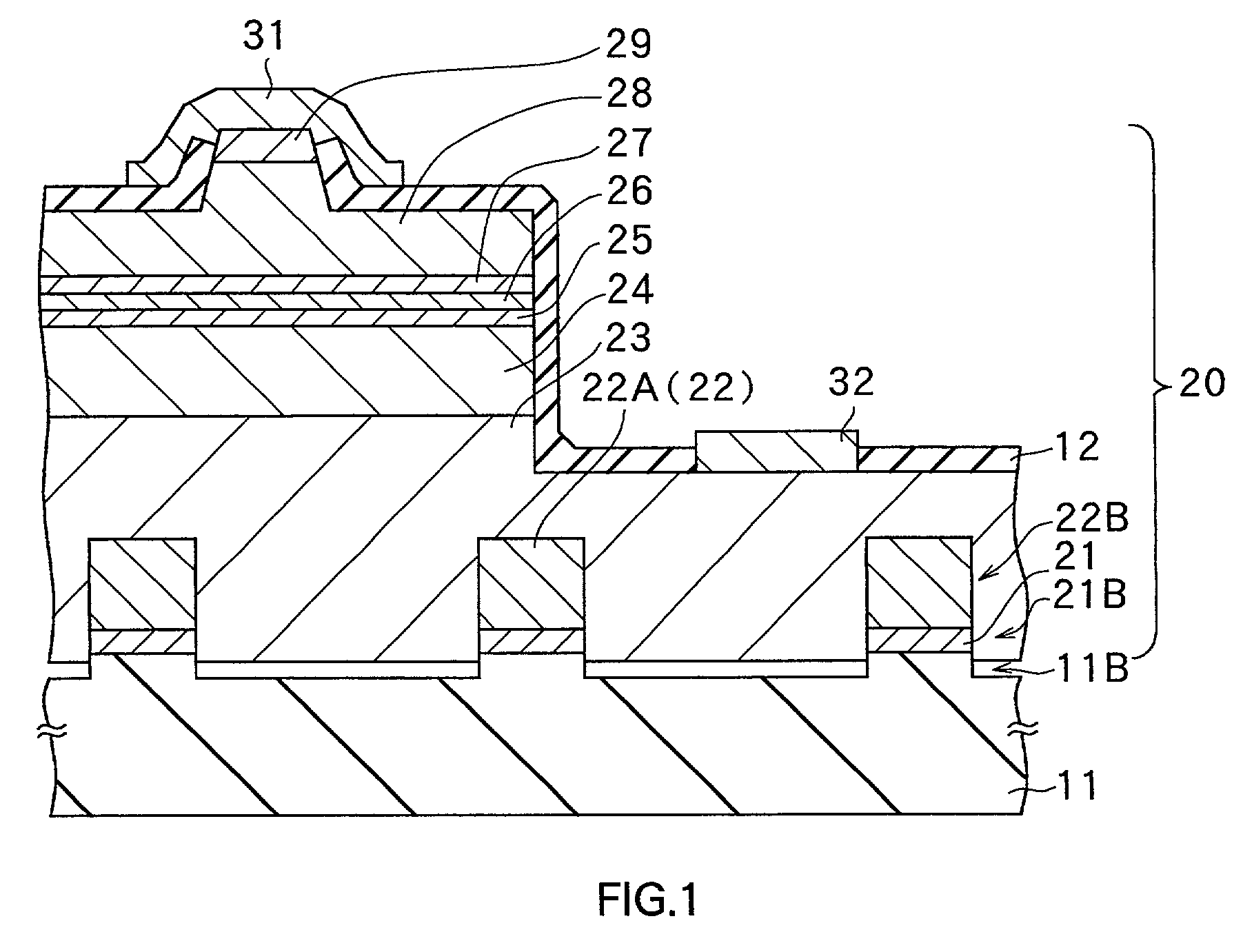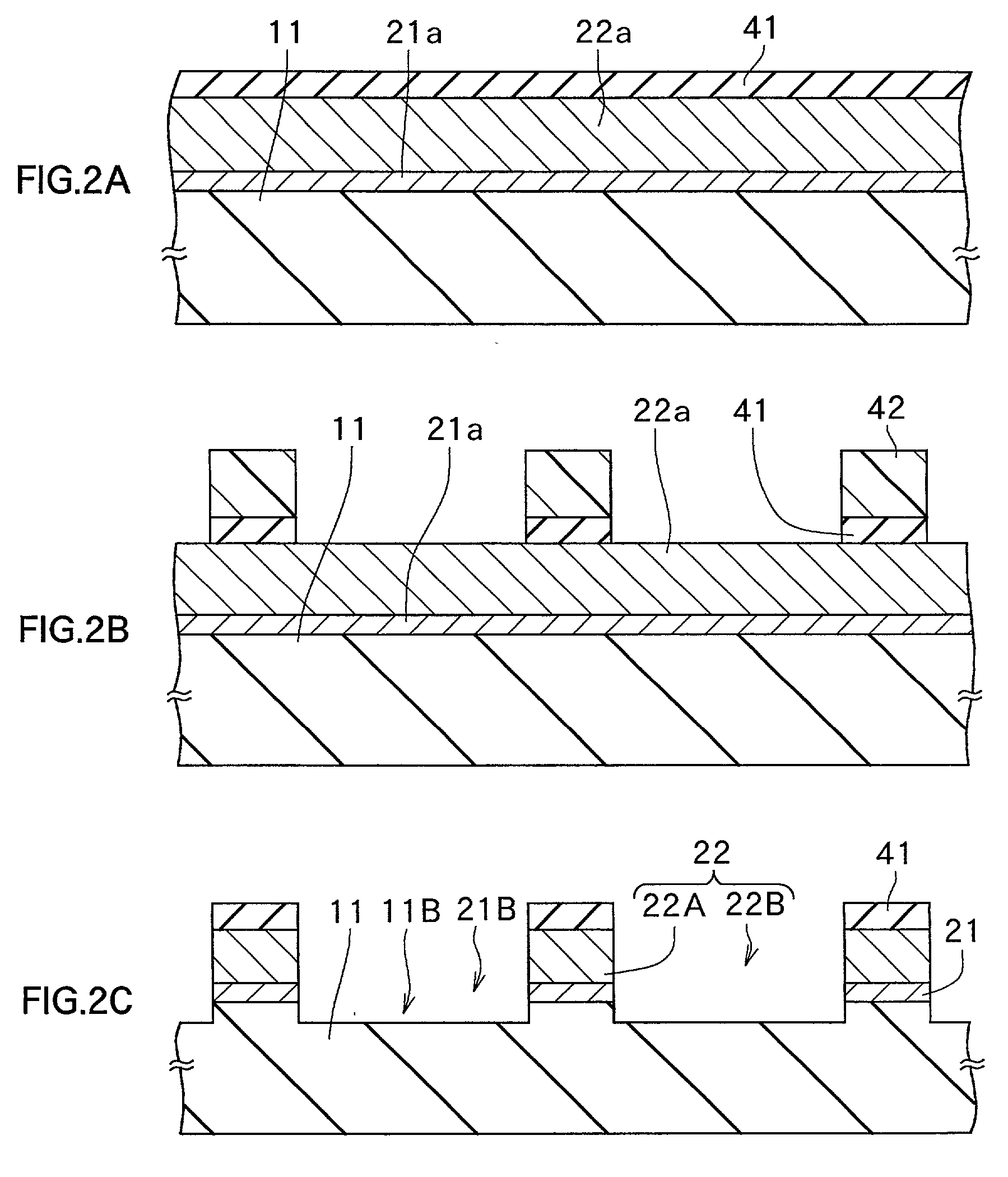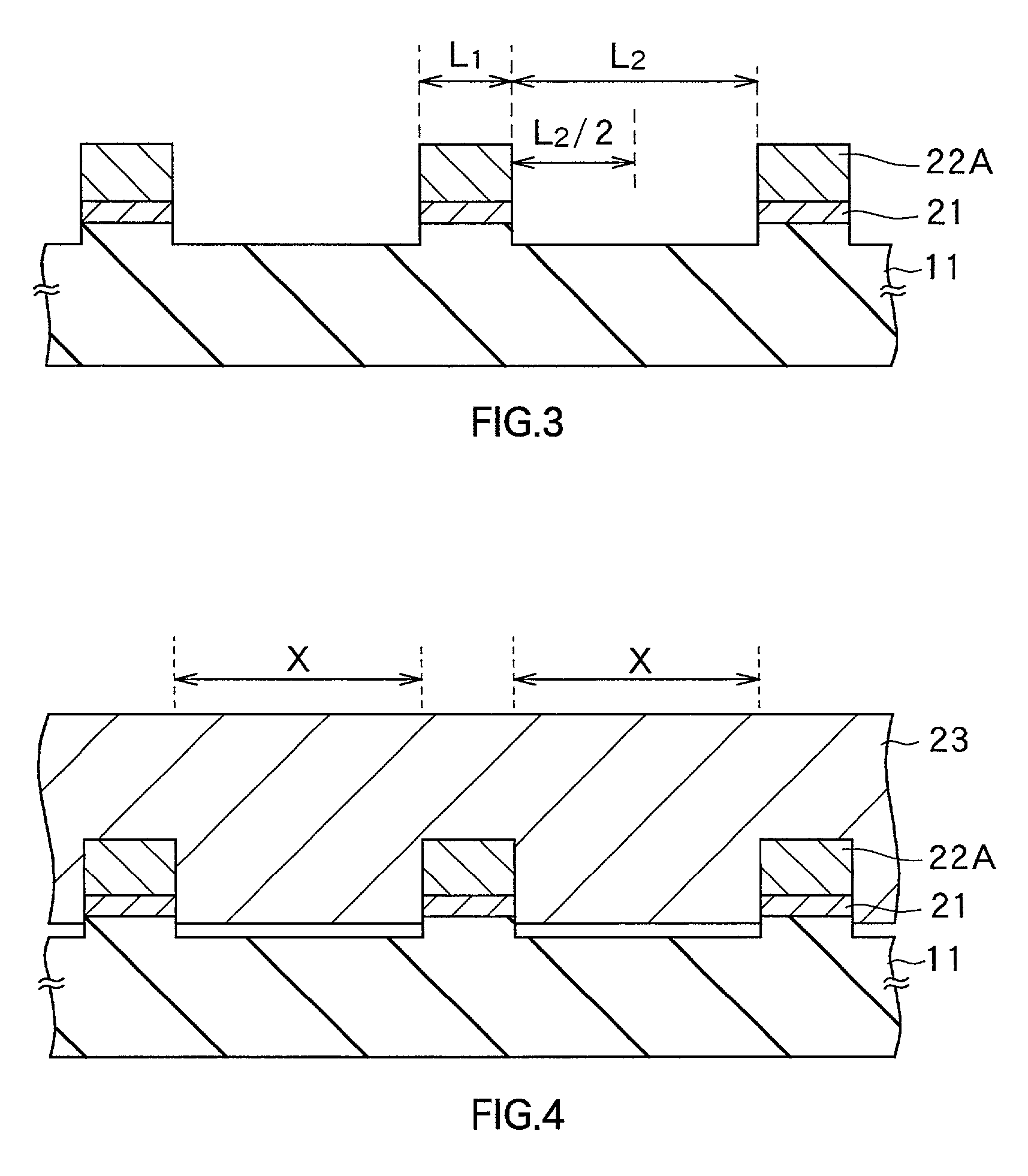Semiconductor device
a semiconductor and device technology, applied in the direction of lasers, radiation controlled devices, semiconductor lasers, etc., can solve the problems of significant failure of stability damage to controllability in a manufacturing process, and the size of the substrate, so as to achieve excellent crystallinity and restrict the bowing of the substrate
- Summary
- Abstract
- Description
- Claims
- Application Information
AI Technical Summary
Benefits of technology
Problems solved by technology
Method used
Image
Examples
examples 1-5
; Evaluation of the GaN Layer
[0079] First, a substrate made of sapphire was prepared. GaN was grown on a c face of the substrate 40 nm with a MOCVD method to form a growth layer for a buffer layer. Following this, with the same MOCVD method, GaN was grown 2 .mu.m to form a growth layer for a seed crystal layer, and then, a insulating film made of silicon nitride was formed on the growth layer for a seed crystal layer with a CVD method.
[0080] Next, a photoresist film was formed on the insulating film and at the same time, a plurality of patterns with a striped shape was formed. RIE was carried out with the pattern-formed photoresist film as a mask to remove the insulating film selectively. After this, the photoresist film was removed.
[0081] After removing the photoresist film, RIE was carried out with the insulating film as a mask to remove part, which the growth layer for the seed crystal layer, the growth layer for a buffer layer, and the substrate were uncovered with the insulatin...
example 2
; Evaluation of the Semiconductor Laser Diode
[0089] Further, with the MOCVD method, a n-type clad layer, a n-type guide layer, an active layer, a p-type guide layer, a p-type clad layer and a p-side contact layer were formed onto the GaN layer of Example 2 sequentialy. Specifically, an n-type Al.sub.0.08Ga.sub.0.92N mixed crystal doped silicon was grown 1.2 .mu.m to form the n-type clad layer and n-type GaN doped silicon is grown 0.1 .mu.m to form the n-type guide layer. The active layer was formed as described hereinafter. First, an N-type GaInN mixed crystal doped silicon is grown 7.0 nm to form the barrier layer, then, an undope-GaInN mixed crystal was grown 3.5 nm to form a well layer. Finally, the active layer was formed by stacking those layers in 3 periods. P-type GaN doped magnesium was grown 0.1 .mu.m to form the p-type guide layer. A p-type Al.sub.0.08Ga.sub.0.92N mixed crystal was grown in 0.5 .mu.m to form the p-type clad layer. P-type GaN doped magnesium was grown 0.1 ....
first embodiment
[0098] Moreover, in the above-mentioned first embodiment, after removing the insulating 41, the n-side contact layer 23 was formed. As shown in FIG. 11, the n-side contact layer 23 may be formed without removing the insulating layer 41 on the seed crystal layer 22. This shields the penetration dislocation M.sub.1 with the insulating film 41, which prevents propagation of the penetration dislocation M.sub.1 from the seed crystal layer 22. Accordingly, in the n-type contact layer 23, crystal defects hardly exist except the penetration dislocation M.sub.2, which is a cause of a meet. This can gain the semiconductor layer of the III-V group compound of the nitride system with excellent crystallinity. However, preferably, a manufacturing method may be chosen depending on a purpose for use because when growing the n-side contact layer 23, a materials contained the insulating film 41 is mixed into the n-side contact layer 23 as an impurity, which degrades characteristics of a semiconductor...
PUM
 Login to View More
Login to View More Abstract
Description
Claims
Application Information
 Login to View More
Login to View More - R&D
- Intellectual Property
- Life Sciences
- Materials
- Tech Scout
- Unparalleled Data Quality
- Higher Quality Content
- 60% Fewer Hallucinations
Browse by: Latest US Patents, China's latest patents, Technical Efficacy Thesaurus, Application Domain, Technology Topic, Popular Technical Reports.
© 2025 PatSnap. All rights reserved.Legal|Privacy policy|Modern Slavery Act Transparency Statement|Sitemap|About US| Contact US: help@patsnap.com



